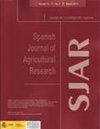西班牙咖啡市场的可持续性标签:一种享乐价格方法
IF 0.8
4区 农林科学
Q3 AGRICULTURE, MULTIDISCIPLINARY
引用次数: 1
摘要
研究目的:以咖啡行业为重点,本文的目的是使用享乐价格方法确定主要可持续性认证(公平贸易,有机,雨林联盟和UTZ认证)的隐含价格。研究地区:西班牙。材料与方法:共纳入645份咖啡样本。这些特征是在2021年9月至10月期间从西班牙五大零售连锁超市销售的咖啡包中收集的。使用对数-对数价格/属性函数来估计享乐价格函数。主要结果:UTZ认证属性、产地属性和咖啡浓度属性均有显著正向影响,导致溢价分别为28.51%、25.50%和26.50%。相比之下,公平贸易认证对咖啡的平均价格有负面影响。研究重点:提出的模型可以被认为是西班牙可持续咖啡的享乐定价模型估计的第一个近似值。研究结果为咖啡行业制定有效的营销策略以支持食品的可持续性提供了有用的信息。本文章由计算机程序翻译,如有差异,请以英文原文为准。
Sustainability labels in the Spanish coffee market: A hedonic price approach
Aim of study: Focused on the coffee sector, the purpose of this paper was to determine the implicit price paid for the main sustainability certifications (Fairtrade, Organic, Rainforest Alliance and UTZ certifications) using the hedonic price approach.
Area of study: Spain.
Material and methods: The total sample included 645 coffees. The characteristics were collected between the months of September and October 2021 from coffee packs sold in the main five supermarkets of retail chains in Spain. A log-log price/attribute function was used to estimate the hedonic price function.
Main results: The attributes UTZ certification, origin, and coffee intensity received significant positive effects leading to higher premium prices of 28.51%, 25.50% and 26.50%, respectively. In contrast, Fairtrade certifications had a negative impact on the average price of coffee.
Research highlights: The proposed model could be considered as a first approximation of a hedonic pricing model estimation for sustainable coffee in Spain. The results provide useful information for the coffee sector in developing effective marketing strategies that support the sustainability of food.
求助全文
通过发布文献求助,成功后即可免费获取论文全文。
去求助
来源期刊

Spanish Journal of Agricultural Research
农林科学-农业综合
CiteScore
2.00
自引率
0.00%
发文量
60
审稿时长
6 months
期刊介绍:
The Spanish Journal of Agricultural Research (SJAR) is a quarterly international journal that accepts research articles, reviews and short communications of content related to agriculture. Research articles and short communications must report original work not previously published in any language and not under consideration for publication elsewhere.
The main aim of SJAR is to publish papers that report research findings on the following topics: agricultural economics; agricultural engineering; agricultural environment and ecology; animal breeding, genetics and reproduction; animal health and welfare; animal production; plant breeding, genetics and genetic resources; plant physiology; plant production (field and horticultural crops); plant protection; soil science; and water management.
 求助内容:
求助内容: 应助结果提醒方式:
应助结果提醒方式:


